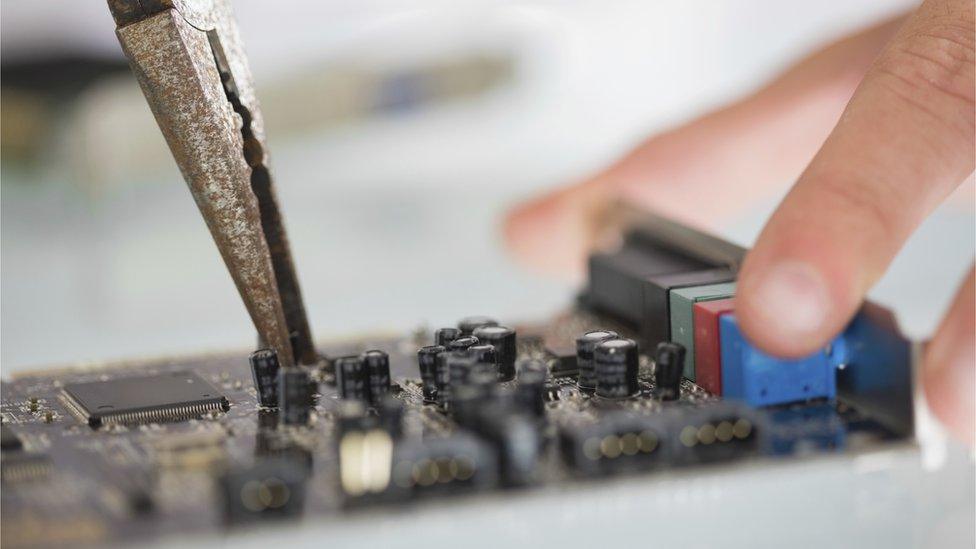Degree apprenticeships 'on verge of significant success'
- Published
- comments

The scheme began two years ago with just 640 degree apprentices
Degree apprenticeships, encompassing university and work, are "on the verge of significant success", says a report.
Almost 5,000 people will begin degree apprenticeships in 2017-18, nearly eight times as many as when the scheme launched in 2015, says Universities UK.
The scheme was already reaching people who would not otherwise have gone to university, the report found.
But more needed to be done to communicate the benefits, said UUK President Dame Julia Goodfellow.
The degree apprenticeship scheme, external operates across England and Wales, although people can apply from throughout the UK.
The UUK study, launched to coincide with National Apprenticeships Week, external and based on a survey of 66 English universities, found:
At least 60 higher education institutions (91% of the sample) were currently looking to introduce degree apprenticeships from September
By then, there will be more than 7,600 people on degree apprenticeships courses
The current growth was driven by the need to meet key skills shortages, the researchers found, with chartered management, digital and technology solutions and engineering the top three areas of provision.
"Degree apprenticeships could play a key role in reducing skills gaps and skills mismatches," says the report.
Additionally, with course fees shared between government and employers, the scheme offers particular benefits to people who might not have considered a degree, says UUK.

Digital, technology and engineering were the top areas of provision, the report found
However, the report also found "a general perception among institutions" that awareness of the scheme among individuals and employers remained too low.
The report urges government and universities to increase efforts "to publicise and improve understanding of degree apprenticeships and their fundamental role in supporting social mobility and raising productivity".
Many larger companies, which are liable to pay the apprenticeship levy of 0.5% on payrolls from next month, are already aware of degree apprenticeships, say the researchers, but they want greater efforts to make small and medium sized enterprises aware of them.
'Artificial divide'
"Many people feel they have been left behind in the drive to increase higher level skills in recent years," said Dame Julia.
"Degree apprenticeships are an excellent way to get to these harder-to-reach groups while, at the same time, ensuring that what we deliver on campus meets the needs of students, the local area and its employers.
"The report shows that there is a still long way to go in communicating to students and employers how degree apprenticeships work and the mutual benefits.
"We would urge the government to work with us to do more here as part of its industrial strategy.
"The artificial dividing line between academic and vocational education is gradually disappearing.
"Degree apprenticeships build on the work that universities already do to deliver skills that employers need," she added.
Robert Halfon, skills and apprenticeships minister, said: "With our reforms to apprenticeships, we are challenging the idea that a traditional university course is the only way in to a top career."
- Published31 January 2017

- Published25 November 2015
